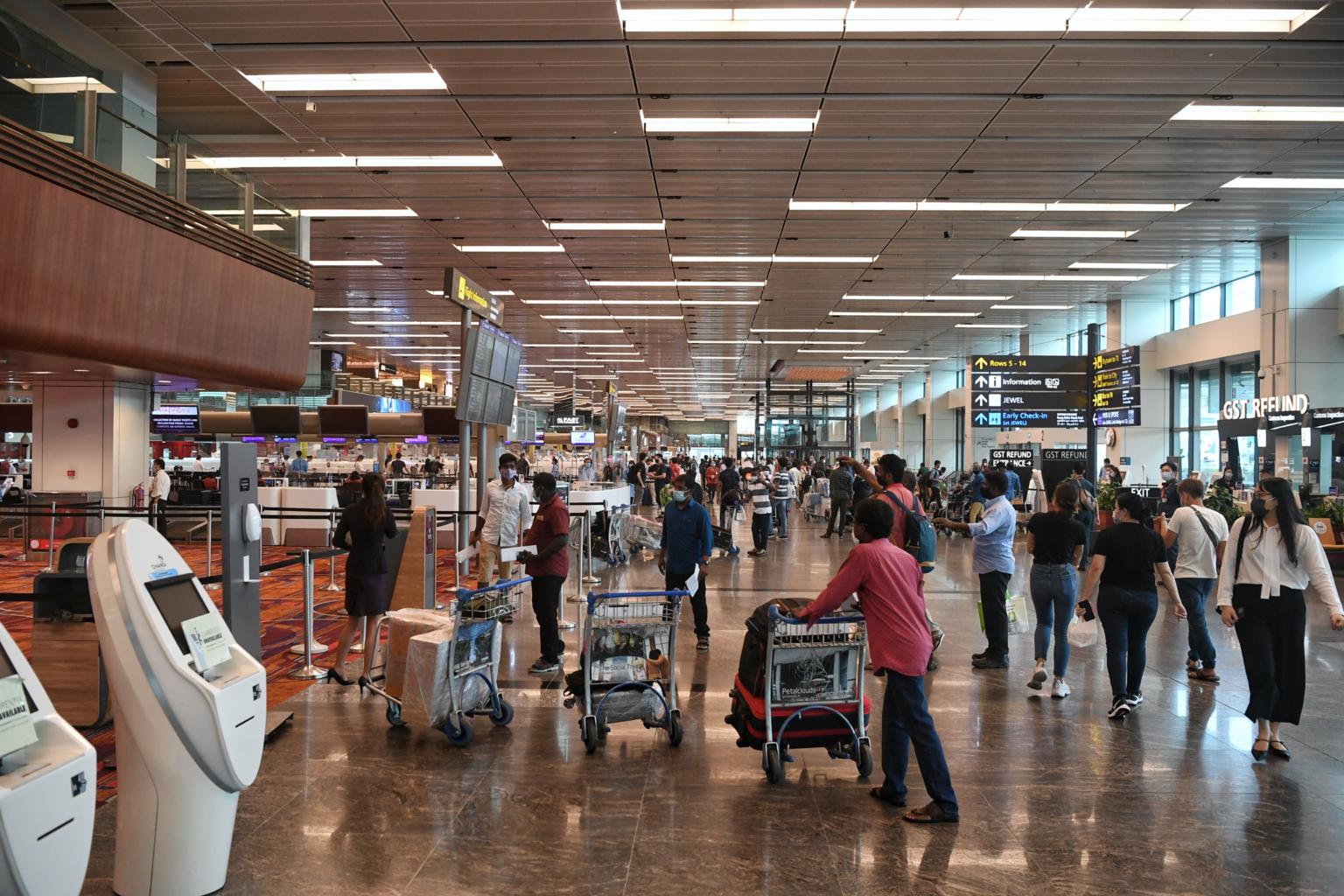Some sectors in Singapore's economy could see slower growth in months ahead: MAS
Sign up now: Get ST's newsletters delivered to your inbox

In particular, the travel-related sector has not shown much indication of a revival.
ST PHOTO: KUA CHEE SIONG
Follow topic:
SINGAPORE - While Singapore's economy has been recovering smartly, bolstered by robust trade-related industries like manufacturing, some sectors remain lacklustre and others could see slower growth in the months ahead.
In particular, the travel-related sector has not shown much indication of a revival, with the air transport segment remaining muted and hotel occupancy in Singapore falling after the year-end demand surge, the Monetary Authority of Singapore (MAS) noted in its macroeconomic review released on Wednesday (April 28).
The growth momentum for some modern services sectors - one of the early drivers of economic recovery last year - could moderate in the coming quarters.
The information and communications, finance and insurance and professional services segments collectively contracted 0.7 per cent in the first quarter, on a quarter-on-quarter seasonally adjusted basis. This was after they grew 5.1 per cent on a quarter-on-quarter seasonally adjusted basis in the last three months of last year.
Maybank Kim Eng senior economist Chua Hak Bin noted that the modern services sector was leading the recovery in Singapore's economy earlier, and is likely to moderate to a more normal pace following the initial sharp rebound.
Similarly, OCBC Bank's head of treasury research and strategy Selena Ling pointed out that the incremental growth in e-commerce payments and infocomm technology industries may be more subdued.
Meanwhile, the outlook for hard-hit sectors like travel-related industries and construction remains pessimistic, the review said.
Air transport visitor arrivals in the first quarter rose 31 per cent on a quarter-on-quarter seasonally adjusted basis to more than 68,000, but this was well below the quarterly average of 4.8 million in 2019.
The average hotel occupancy rate fell to 43 per cent in January to February, compared with an average of 57 per cent in the fourth quarter last year. This was largely due to the moderation in demand for staycations after the year-end holidays, MAS said.
"The travel-related and construction sectors will continue to lag behind and remain the most vulnerable to tighter border controls and fresh virus outbreaks around the world," Dr Chua said, noting that recovery for the construction sector could be dampened by the recent foreign worker dormitory measures and stricter cross-border restrictions on India.
For the consumer-facing segments such as retail and food and beverage, it is a brighter picture as safe distancing curbs are relaxed and the vaccine roll-out ramps up, he said.
Ms Ling highlighted the uncertainties and challenges that continue to plague travel-related segments like air transport and hospitality - cautiousness around Covid-19 virus mutations, vaccine efficacy and supply.
"What this means is that the air transport segment and the hospitality-related industries will start to see a bit of light at the end of the tunnel, especially with planned events like the World Economic Forum and the Shangri-La Dialogue.
"But it's not a widespread re-opening of international borders, so it will still be a long and challenging road ahead," she said.

